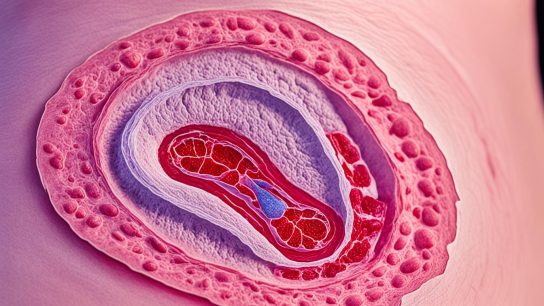Welcome to our comprehensive guide on why your body may be experiencing aches and tiredness without a fever. If you’ve been wondering “why does my body ache?” or “why do I feel tired?” even though you don’t have a fever, this article is for you! We’ll delve into the various factors that can contribute to body aches and exhaustion, exploring potential causes such as stress, dehydration, lack of sleep, common infections, chronic conditions, and more.
Understanding the reasons behind your body aches and fatigue is essential for finding the appropriate treatment and improving your overall well-being. Certain conditions like fibromyalgia, chronic fatigue syndrome, and autoimmune disorders can cause widespread pain and exhaustion. Additionally, infections like the flu or COVID-19 can lead to inflammation in the body, resulting in muscle pain and discomfort.
Whether you’re experiencing mild body pain or more severe symptoms, it’s important to pay attention to your body’s signals. Seeking medical attention and consulting with healthcare professionals can help you uncover the underlying cause of your symptoms and guide you towards the most effective treatment options.
Why Does My Body Ache and I Feel Tired No Fever?
Experiencing body aches without a fever can be perplexing, but there are several common causes that could be behind this discomfort. Understanding these reasons can help in identifying the underlying factors contributing to body fatigue and muscle pain.
Here are some potential causes to consider:
- Stress: Emotional or physical stress can lead to muscle tension and soreness, resulting in body aches.
- Dehydration: Insufficient hydration levels can cause muscle cramps and a general feeling of fatigue in the body.
- Lack of sleep: When you don’t get enough restful sleep, your muscles may not have enough time to recover, leading to muscle pain and fatigue.
- Viral or bacterial infections: The common cold sore, flu, and other infections can cause inflammation and discomfort in the muscles.
- Chronic conditions: Conditions like fibromyalgia, chronic fatigue syndrome, and autoimmune disorders such as lupus and arthritis can cause persistent body aches without the presence of a fever.
- Vitamin and mineral deficiencies: Lack of essential nutrients, like vitamin D or calcium, can contribute to muscle pain and weakness.
- Medications: Certain medications can have side effects that result in muscle aches and fatigue.
It’s important to note that these are just some of the possible causes. If you’re experiencing body aches without a fever and they persist or worsen, it’s advisable to seek medical attention. A healthcare professional can provide a proper diagnosis and develop a treatment plan tailored to your specific situation.
| Potential Causes | Key Symptoms |
|---|---|
| Stress | Muscle tension, soreness, general fatigue |
| Dehydration | Muscle cramps, overall fatigue |
| Lack of sleep | Muscle pain, exhaustion |
| Viral or bacterial infections | Inflammation, muscle discomfort |
| Chronic conditions | Widespread body aches, persistent fatigue |
| Vitamin and mineral deficiencies | Muscle pain, weakness |
| Medications | Muscle aches, fatigue |

It’s essential to consider these common causes of body aches without a fever and take appropriate steps to address them. By identifying and addressing the underlying factors contributing to body fatigue, you can work towards finding relief and enhancing your overall well-being.
Stress and its Impact on Body Aches Without Fever
Stress can have a significant impact on the body, both mentally and physically. When the body experiences stress, it can become more susceptible to inflammation and infection, leading to aches and pains.
Stress is a natural response to challenging situations, but when it becomes chronic, it can take a toll on our bodies. Research has shown that long-term stress can contribute to a wide range of health problems, including cardiovascular disease, digestive disorders, and musculoskeletal issues.
One of the ways stress manifests in the body is through muscle tension and aches. When we’re stressed, our muscles tighten up as a result of the body’s natural fight-or-flight response. This can cause muscle pain and discomfort, even in the absence of fever or physical injury.

Managing stress is crucial not only for our mental well-being but also for minimizing the impact it has on our bodies. Here are some effective strategies to help manage stress and alleviate body aches:
1. Practice Relaxation Techniques
Engaging in relaxation techniques such as deep breathing exercises, meditation, and yoga can help reduce stress levels and promote relaxation throughout the body. These techniques help activate the body’s natural relaxation response, easing muscle tension and promoting a sense of calm.
2. Regular Exercise
Physical activity is an excellent way to manage stress and boost our body’s natural pain-fighting abilities. Regular exercise releases endorphins, which are natural mood boosters and pain relievers. It also helps improve blood circulation, loosen tight muscles, and reduce muscle stiffness associated with stress.
3. Seek Emotional Support
Talking to a trusted friend, family member, or mental health professional about your stressors can provide valuable emotional support and help alleviate stress. Sharing your concerns and feelings with someone who understands can help lighten the burden and offer fresh perspectives on managing stress.
4. Prioritize Self-Care
Make sure to prioritize self-care activities that promote relaxation and well-being. This may include taking regular breaks, engaging in hobbies, getting quality sleep, and practicing mindfulness. Taking care of yourself is essential for managing stress and minimizing its impact on your body.
By implementing these strategies, you can effectively manage stress and reduce the likelihood of experiencing body aches without fever. Remember, it’s important to listen to your body and seek medical attention if symptoms persist or worsen. Taking proactive steps to manage stress is key to improving your overall well-being and living a healthier, more balanced life.
Dehydration and Muscle Aches Without Fever
Dehydration can have a significant impact on our overall well-being, and one of its lesser-known effects is its ability to cause muscle aches and cramps without the presence of a fever.
When our bodies lack sufficient fluids, a domino effect occurs. Dehydration leads to imbalances in electrolytes, which are essential for proper muscle function. This imbalance can result in muscle spasms, cramps, and discomfort.
To prevent dehydration-related body aches, it is crucial to prioritize staying hydrated. Drinking an adequate amount of water throughout the day is essential. Additionally, consuming electrolyte-rich fluids, such as sports drinks or coconut water, can help replenish the body’s electrolyte levels and alleviate muscle aches.
Staying hydrated not only helps prevent muscle cramps but also has numerous other benefits for our bodies. It aids in digestion, regulates body temperature, facilitates nutrient absorption, and promotes healthy skin.
Remember, maintaining proper hydration is the key to preventing dehydration-related muscle aches and ensuring the optimal functioning of our bodies. So grab a glass of water and prioritize staying hydrated throughout the day.

Lack of Sleep and Its Impact on Body Aches Without Fever
The importance of quality sleep cannot be emphasized enough when it comes to preventing body aches and maintaining overall well-being. Lack of sleep can significantly affect the body, making it more sensitive to pain and exacerbating existing pain symptoms. Sleep deprivation also poses risks for the development of chronic conditions, such as diabetes, cardiovascular disease, obesity, and depression.
Research has shown that insufficient sleep can disrupt the body’s repair and rejuvenation processes, hindering its ability to heal and recover. This can lead to increased muscle tension and inflammation, resulting in muscle pain and discomfort.
For adults, it is recommended to aim for around 7 hours of quality sleep each night. Establishing a regular sleep schedule, creating a comfortable sleep environment, and practicing good sleep hygiene can help promote restful and rejuvenating sleep. It is also essential to manage stress and avoid stimulating activities close to bedtime.
Getting enough quality sleep is crucial for the body’s overall health and functioning. It not only helps alleviate body aches but also improves cognitive function, boosts immunity, and enhances mood and mental well-being.
1. The Link Between Lack of Sleep and Body Aches
Lack of sleep affects the body’s pain perception, making individuals more sensitive to pain stimuli. Studies have shown that sleep deprivation can lower the pain threshold, meaning that even minor discomfort can be perceived as more intense or painful. This heightened pain sensitivity can contribute to the experience of body aches and muscle pain.
Furthermore, sleep deprivation can disrupt the body’s natural pain management systems. During sleep, the body releases hormones and endorphins that help regulate pain and reduce inflammation. Without sufficient sleep, these natural pain-relieving mechanisms may not function optimally, leading to increased muscle pain and discomfort.
2. The Role of Quality Sleep in Body Repair and Rejuvenation
During sleep, the body undergoes crucial repair and rejuvenation processes. It is during this time that damaged tissues are repaired, and the body’s energy stores are replenished. These processes are essential for maintaining optimal muscle function, minimizing inflammation, and promoting overall physical well-being.
Quality sleep also plays a vital role in supporting the body’s immune system. It helps strengthen immune defenses, enabling the body to fight off infections and inflammation that can contribute to body aches. Sleep deprivation, on the other hand, can weaken the immune system and increase vulnerability to illness and musculoskeletal discomfort.
It is important to prioritize achieving quality sleep by adopting healthy sleep habits, creating a sleep-conducive environment, and seeking professional help if sleep problems persist. By doing so, individuals can significantly improve their overall health, reduce the risk of body aches, and enhance their overall quality of life.

Common Infections and Body Aches Without Fever
Infections can have a significant impact on the body, leading to body aches and muscle pain even without a fever. Common infections such as colds, flu, and COVID-19 can cause inflammation in the body, triggering discomfort and soreness. It’s essential to pay attention to the specific symptoms associated with these infections in order to take appropriate action and seek medical attention if necessary.
Along with body aches, infections may also present symptoms like fever, cough, headache, and fatigue. Identifying these signs can help determine the underlying cause and guide the right course of treatment. Understanding the impact of infections on the body is crucial for managing symptoms effectively and ensuring a prompt recovery.
To emphasize the importance of recognizing and addressing infections, let’s take a look at a table outlining the key symptoms of common infections:
| Common Infections | Symptoms |
|---|---|
| Colds | Nasal congestion, runny nose, sore throat, sneezing, cough |
| Flu | Fever, chills, body aches, headache, fatigue, cough |
| COVID-19 | Fever, cough, shortness of breath, body aches, fatigue, loss of taste or smell |
Recognizing these symptoms can provide valuable insights into the nature of the infection and enable individuals to seek appropriate medical care. Addressing infections promptly not only helps alleviate body aches but also minimizes the risk of complications and ensures the overall well-being of the body.
To further illustrate the impact of infections on the body, here’s an image that highlights the connection between infections, body aches, and overall health:
By understanding the relationship between infections and body aches, individuals can make informed decisions about their health and take the necessary steps to manage symptoms effectively.
Chronic Conditions and Body Aches Without Fever
Chronic conditions such as fibromyalgia, chronic fatigue syndrome, arthritis, and lupus can lead to persistent body aches and fatigue. These conditions affect the muscles, joints, and immune system, causing chronic pain and overwhelming exhaustion. Individuals with fibromyalgia experience widespread pain throughout their bodies, along with symptoms like fatigue, sleep disturbances, and cognitive difficulties. On the other hand, chronic fatigue syndrome is characterized by extreme fatigue that is not alleviated by rest, often accompanied by muscle pain, impaired concentration, and flu-like symptoms.
Autoimmune disorders like lupus and certain forms of arthritis can also result in body aches. These conditions occur when the immune system mistakenly attacks healthy tissues and organs, causing inflammation and pain in various parts of the body. The accompanying muscle pain may vary in intensity and can significantly impact daily functioning and quality of life.
Effective diagnosis and treatment are crucial for managing these chronic conditions and alleviating associated symptoms. Healthcare professionals play a vital role in identifying the specific condition and developing a comprehensive treatment plan tailored to each person’s needs. This may include a combination of medication, physical therapy, lifestyle changes, and self-care strategies to improve overall well-being and minimize discomfort.
1. Key Symptoms of Fibromyalgia
- Chronic, widespread pain throughout the body
- Fatigue and exhaustion
- Sleep disturbances
- Cognitive difficulties (“fibro fog”)
2. Common Symptoms of Chronic Fatigue Syndrome
- Severe, persistent fatigue
- Muscle pain and weakness
- Memory and concentration problems
- Headaches and sore throat
Proactive management of chronic conditions through regular medical check-ups, healthy lifestyle choices, and ongoing support can help individuals with chronic pain and fatigue regain control of their lives and enhance their overall well-being.
Conclusion
Body aches and fatigue without a fever can have numerous causes, ranging from stress and dehydration to chronic conditions and infections. It’s crucial to listen to your body’s signals and seek medical attention if the body aches persist or worsen. By understanding the underlying cause of your discomfort, you can find the appropriate treatment and improve your overall well-being.
Remember to prioritize self-care, manage stress levels, stay hydrated, and make sure you are getting enough quality sleep. These simple lifestyle choices can have a significant impact on reducing body aches and fatigue. Additionally, don’t hesitate to seek professional help when needed. Healthcare professionals can provide guidance and support in diagnosing and managing your condition.
Take control of your health by proactively addressing the causes of body aches without a fever. Whether it’s adjusting your lifestyle habits or seeking medical intervention, understanding and addressing the root cause is key to finding relief. By doing so, you can regain your vitality and enjoy a life free from unnecessary pain and fatigue.
FAQ
1. Why does my body ache and I feel tired without a fever?
Body aches and tiredness without a fever can have various causes. Some common reasons include stress, dehydration, lack of sleep, colds and flu, anemia, vitamin D and calcium deficiency, infections like mononucleosis and pneumonia, chronic conditions like fibromyalgia and chronic fatigue syndrome, autoimmune disorders like lupus and arthritis, and even certain medications.
2. What are the common causes of body aches without a fever?
Common causes of body aches without a fever can include stress, dehydration, lack of sleep, viral or bacterial infections like the common cold and flu, chronic conditions such as fibromyalgia and chronic fatigue syndrome, autoimmune disorders like lupus and arthritis, certain vitamin and mineral deficiencies, and even certain medications.
3. How does stress impact the body and cause body aches without a fever?
Stress can have a significant impact on the body, both mentally and physically. When the body experiences stress, it can become more susceptible to inflammation and infection, leading to aches and pains. Managing stress through relaxation techniques, exercise, and seeking support can help alleviate body aches and improve overall well-being.
4. Can dehydration cause body aches?
Yes, dehydration can cause muscle cramps and aches in the body. When the body lacks sufficient fluids, it can lead to imbalances in electrolytes and impact muscle function. Staying hydrated by drinking enough water and consuming electrolyte-rich fluids can help prevent dehydration-related body aches.
5. How does lack of sleep contribute to body aches without a fever?
Lack of sleep can make the body more sensitive to pain and exacerbate existing pain symptoms. It can also increase the risk of chronic conditions such as diabetes, cardiovascular disease, obesity, and depression. Getting enough quality sleep, around 7 hours for adults, is essential for the body’s repair and rejuvenation processes, as well as overall well-being.




